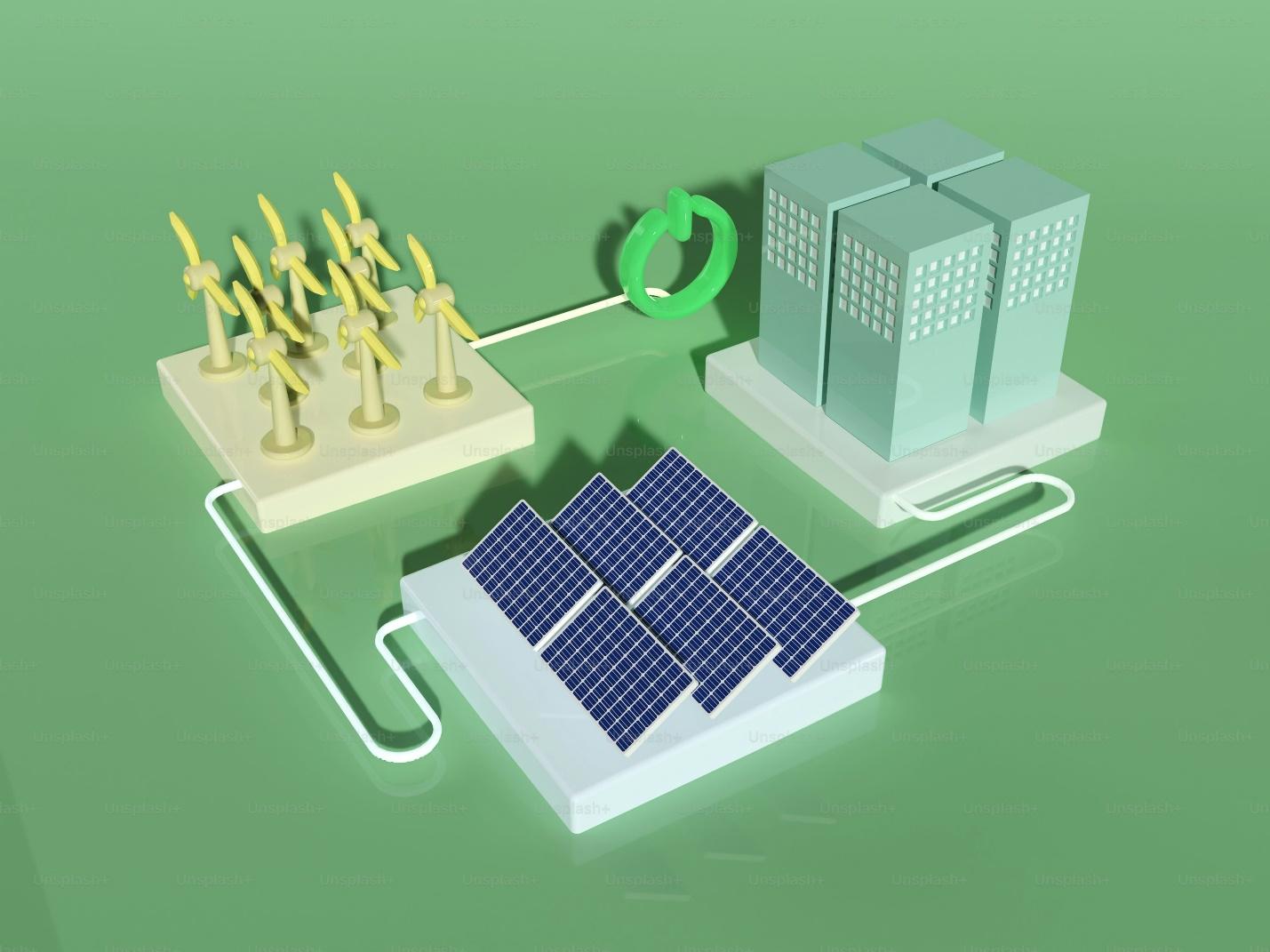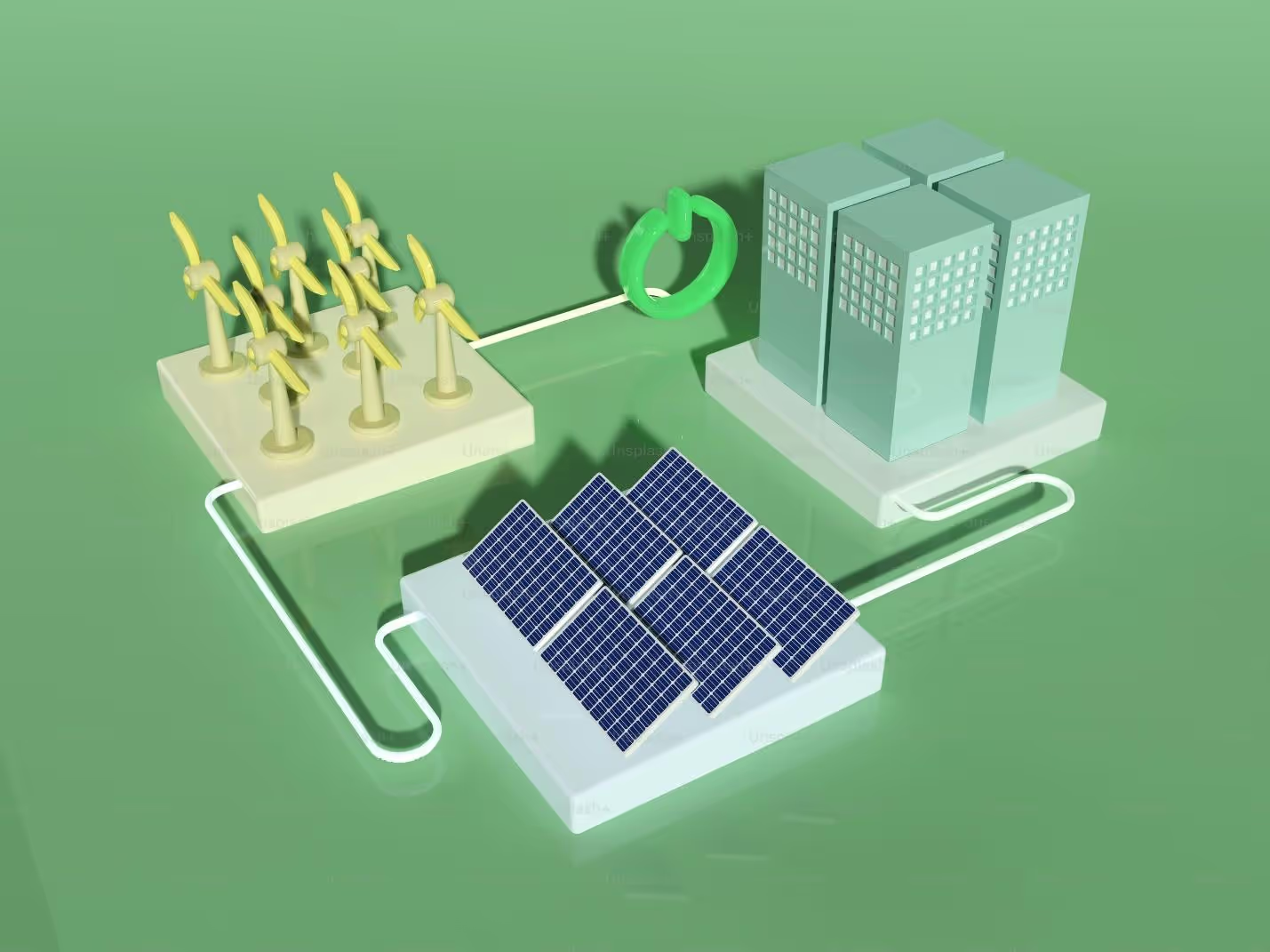What We Do
Location
123 Business Street, Suite 456
New York, NY 10001, USA
Contact us


Funding is necessary for a startup to survive and, most of the time, they go for angel investors and venture capital when they can’t get loans from the bank or friends. That said, entrepreneurs in the cleantech industry can find it challenging to get a funding option that aligns with their vision and covers a significant investment.
Within this fast-paced ecosystem, a good alternative to growing your business is to go for accelerators and incubators. Usually, these two go hand in hand, giving you access to the resources necessary to build a sustainable company. Early-stage startups can offer the opportunity to refine your ideas and create viable products, whereas accelerators can help scale your business faster.

With the climate crisis looming over us and posing a serious threat, startups in this industry can use these specialized programs to support their eco-friendly innovations. In this article, you can learn more about these programs and how to make your choice, turning your small-scale climate company into a groundbreaking one.
Incubators and accelerators are often used interchangeably, but they are quite different for the goal of your strategy. Indeed, both options are there to help your company grow, but your choice ultimately depends on the stage of your business. Are you just starting, or is your goal to expand?
Incubators are recommended for early-stage startups, where you need something that can nurture your business’s growth over the long term. Ideal for initial growth strategies spanning over 1 to 5 years, they offer access to resources such as mentorship, workspaces, and industry networks. Through this, you can refine potential prototypes and ideas, helping you launch your business.
On the other hand, accelerators assume that you are already grounded in the industry while your purpose is to innovate. These programs run for a much shorter time, usually between 3 and 6 months. Their overall objective is to scale the business, like when you are planning to switch from local to international reach.
Both programs are beneficial not only for the financial benefits but also for the networking opportunities that they provide. With accelerators and incubators, the doors to mentors and potential investors should open. This way, not only can you get the necessary funding to help grow your business, but you can also obtain sector-specific knowledge and expertise.
When it comes to reaching climate goals, only about 12% of the companies manage to do so, regardless of their focus. This is mainly due to the limited resources they have access to, preventing them from creating a sustainable plan that drives growth. This does not only include the financial resources but also the expertise necessary to promote growth.
Incubators and accelerators offer tailored support for companies in need of these resources, providing the necessary funding and infrastructure means to succeed. The networking opportunities also offer access to guidance and mentorship, which can help cleantech startups better understand the technologies.
Considering the cleantech workforce shortage, this kind of mentorship and resource access can make the difference between evolution and stagnation. A good incubator or accelerator can help companies bypass the high capital costs, decreasing the timeframe until profitability is reached.
Whether you are looking for incubators or accelerators, there are multiple program alternatives that you can go for. Entrepreneurs can find them listed on platforms such as ClimateDoor, which connects them to the program. It is important to understand your growth plan so that you choose the solution most suitable for your needs.
International incubators and accelerators offer broad coverage for numerous climate companies. Here are some of the most popular options:
Climate and cleantech startups looking for resources and lab space could consider Greentown Labs. The program brings together investors, politicians, corporations, and startups, offering climate-oriented companies an excellent opportunity for growth.
Located in Hawaii and California, this incubator is a good opportunity for cleantech companies in the area, especially with the average temperature increase. If you are experiencing water, climate change, transportation, and energy challenges, this program could help you access all the right resources. Renewable energy companies such as Allume Energy benefited from this program, improving their reach.
If you focus on climate change solutions and carbon reduction, then Carbon13 in the UK might be a good option. This could significantly help you if you want to build a renewable venture team or get access to funding.
Should growth be your main focus, then this program can help you with your sustainable and energy innovations. With this accelerator, you can connect with investors and corporate partners. It is quite a popular choice among companies looking for mentorship, but it can also open access to funding opportunities.
Do you plan to expand your reach in Europe? In that case, you might want to consider EIT Climate-KIC. The program is quite versatile, and you can get access to mentorship, funding, and networking to support your innovations. Companies such as EMBIO Diagnostics used the program to support early growth, helping them become notable in the long run.
There are also numerous opportunities for climate companies in Canada that are looking for more localized incubators and accelerators. You can look through the following options:
Impact-driven ventures such as the ones in cleantech might benefit from this program, as it offers both incubators and accelerators. Companies can get access to funding and an extensive network of investors and mentors that can help them grow their reach in the short and long term.
Those focusing on climate innovation and clean technology could try the Foresight Cleantech Accelerator Centre. The program is often recommended for those who need a super-niched accelerator, providing funding support, market access, and multiple opportunities for connections.
Are you looking to fund your research or get mentorship opportunities for your innovation? In this case, the MaRS Discovery District can come to the aid of those residing in Toronto. Companies such as Ecobee (a smart thermostat provider) have grown quite a lot ever since they started using the program, and the new access to corporate partners has helped them climb the success scale.
Those searching for objective-based programs to massively scale their business could try this incubator in the seed stage. With a focus on climate tech, its primary location may be in Canada, but it is spread across 12 areas in Europe and North America. Companies such as Aqua Cell Energy have participated in this program, kickstarting their growth in the long term.

Choosing the right incubator or accelerator for your cleantech startup can be challenging despite the numerous alternatives. What works for other similar companies might not work just as well for you. Before placing your stamp of approval on something, consider the following factors:
The phase of the startup is likely the most important thing to keep in mind when narrowing down your choices. For instance, if you are in the beginning stage of your business, you are 73 percent more likely to reach success if you use an incubator to drive your growth. Since you barely have enough of a structure to work with, the long-term resources of these programs can offer more coverage so that you can drive growth.
On the other hand, if you are in the growth stage, it can be assumed that you already have a sturdy foundation. For this reason, an accelerator with a deep market reach can offer the short-term boost you seek. Look for accelerators rich in industry connections, as they can attract more investment opportunities for your growth phase.
The incubator or accelerator’s proximity to key markets can help you decide which program is more suitable for you. For instance, it’s ideal to choose a solution in a region with favorable policies for the cleantech industry. This ensures you get all the right connections and resources, bringing value to your business growth plans.
A good idea would be to go for programs located in innovation hubs with a strong network. They might be slightly more difficult to obtain, but they can also offer more resources compared to one in a remote area. This could improve your success rate for both short-term and long-term growth.
Some programs have broader coverage with a one-size-fits-all type of approach. That said, it might be more beneficial for you to go for a sector-specific program. This should make it easier to find suitable mentors and investors who are aware of the industry’s challenges, as well as workshops fully prepared to handle your necessities.
As someone in the climate industry, you might want to go for specializations such as energy innovation, cleantech energy, and long-term sustainability. In the end, the final choice is yours – but the closer they are to what drives your business, the more relevance these programs can hold for you.
Last but not least, consider the specific resources they can offer and cross-reference them with your company’s needs. For instance, some climate companies might require technical mentorship to help them brainstorm ideas for new climate products. Others might need funding and a lab workspace to put their existing ideas to good use.
Make sure that you have created a strong pitch and business model, as this can narrow down your options.
Over time, plenty of climate companies have used incubators and accelerators to steer their business toward growth. Two of the most notable examples are Ample and Climeworks, which used incubators and accelerators to spur their expansion.

Ample is a company that has revolutionized the electric vehicle (EV) industry, changing how battery swapping is handled. Over time, they have taken advantage of multiple accelerators to expand their efficiency and operations, eventually developing a battery that could be swapped in 10 minutes. This allowed them to reduce carbon EV emissions, bringing them one step closer to their climate goals.
Climeworks also participated in numerous accelerator programs, including the EIT Climate-KIC accelerator, between 2012 and 2013. This opened the community doors to the company, giving them access to early-stage partners and mentorships, successfully assessing their climate impact. Due to their consistent involvement, Climeworks plans to reduce CO2 emissions by 40% in the next years.
The climate tech landscape is continuously evolving, especially as the world takes urgent steps to address climate change. Whether it is the government or business owners, the population is committed to reducing their carbon footprint and investing more in renewable technology.
Accelerators are expected to facilitate better collaboration between different industries, addressing various climate crisis matters. With corporations taking a significant interest in the topic of climate change, many are implementing their own programs to support startups in their endeavors. These can take many forms as time goes by, from physical and virtual programs to significantly longer engagement periods.
Business accelerators and incubators can effectively drive climate innovation if you want to positively impact the environment. Chosen correctly, they can offer access to financial resources and mentorship, leading to sustainable growth. Climate-focused entrepreneurs should seek these programs, as they can provide scalable solutions.
To learn more about specific incubators and accelerators, business owners should consider reaching out to ClimateDoor. We can connect you to the programs most suitable for your needs, giving you the appropriate guidance. Also, feel free to leave your thoughts and questions in our comment section, and subscribe to our newsletter for more insights!